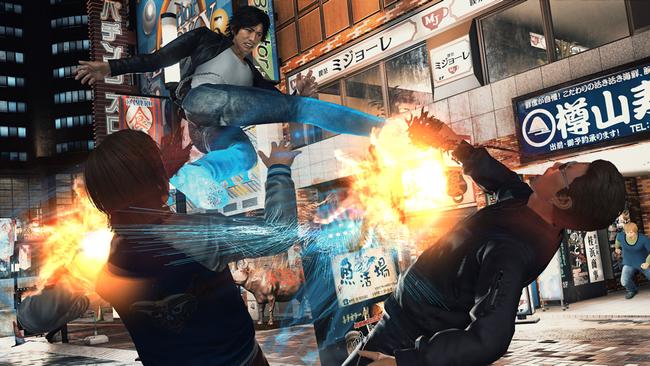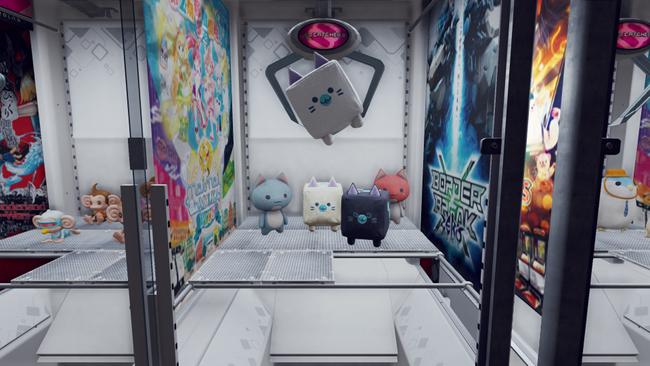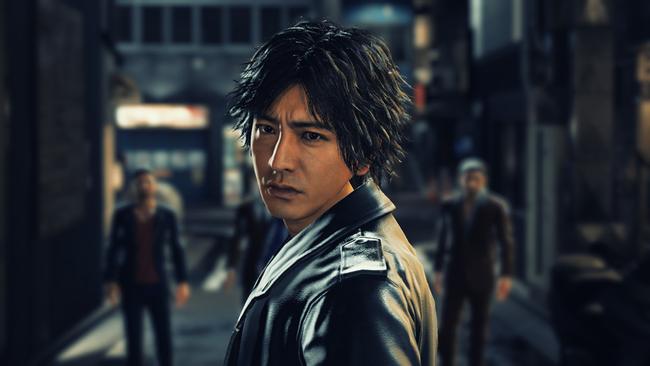Judgment Review
Ryu ga Gotoku Studio came out swinging last year with its numerous back to back releases in the West of the highly regarded Yakuza series, and it seems like they’re not slowing down with Judgment. While set in the same scenario, Judgment manages to stand out as its own narrative separate from the legacy of its readily established older brother. Numerous additions and improvements have been made, the story is jam-packed with drama and action as one would expect, but for a stand-alone game, it doesn’t pull any punches.
Unlike the near entirety of the Yakuza series, both English and Japanese voice tracks are available in Judgment, with each version boasting a wide range of talent and notable actors. I had already played through the Japanese version of Judgment late last year, so this time I opted for English voice over. While I had my reservations at first, the English voice cast for Judgment did a spectacular job of bringing the essence of these characters in their individual performances. I would suggest if you enjoy Judgment enough the first time around, to play the game a second time and experience both tracks since they’re equally great within their own right. As always, the localization team behind Ryu ga Gotoku Studio does a phenomenal job. I would say their work in Judgment is only rivaled by their expert localization of Yakuza 0, and I don’t say this lightly. All of the nuances are kept intact in Judgment and all key elements of this deeply Japanese paralegal drama are retained perfectly.

Onto the more action-oriented elements of Judgment, Yagami can freely switch between two different combat styles during encounters - the single-target focused Tiger and the crowd control oriented Crane. While not unlike the style switching in Yakuza 0 and Yakuza Kiwami, (Yes, comparisons to Ryu ga Gotoku Studio’s Yakuza franchise will be plentiful in this review) this system adds a new level of complexity to what has otherwise been a very straightforward system. Players can also utilize environments on an entirely new level with Yagami’s ability to perform wall jumps and acrobatic evades into a handful of combos. I found these instances extremely exhilarating during encounters, especially when executing the various EX Actions (Judgment’s Heat Moves). For those that might find this system overly complex Judgment comes in several difficulties to accommodate. The “Simple” difficulty allows for all combos and Ex Actions to be executed by pressing the square button during combat encounters.
Sub Stories still exist in Judgment to some extent through Side Cases, and the Friendship feature from Yakuza Kiwami 2 makes a return as well, but is a little more “in-depth” this time around. However, I say that loosely as raising friendship with the various establishments in Kamurocho vary and is mostly done through purchasing items at each venue or showing up from time to time to interact with the shopkeepers by answering questions. It adds a little bit to the system, but not too much as to be overwhelming. I found some of the conversations with shopkeepers endearing as they gave more context to the familiar venues I had visited in the Yakuza series.
In general, I enjoyed the conversations in Judgment when investigating the primary case as well as the side cases. Conversations are on a wheel this time around when investigating, with players being given the option to select which questions they find suitable in relation to the answers given. These instances made me consider my options to a greater degree to take advantage of the rewards in getting every answer correct. It’s important to note that not following every lead perfectly doesn’t prevent story progression - the narrative will play out the same regardless, it just nets you more points to spend on abilities.
Investigations have two other key features added to them - trailing suspects and using your drone or your observation skills to find clues. Both of these mechanics are explained within the first few minutes of the game and are used at numerous points throughout. While these try to break up the straightforward nature of going from point A to point B on your map, using your drone to investigate or having to search for clues can sometimes prove frustrating. However, if players can't find these points of interest you'll be given an option to receive hints which will help you find them easier. This does remove any future rewards from the observational investigation segment, but does make it somewhat easier. Trailing on the other hand just involves not going too close to a suspect and hiding behind signs or blending into groups of people to avoid detection. It seems easy enough, but sometimes these spots won't show up or aren't entirely clear. Once you've completed trailing a suspect you'll being a QTE heavy chase sequence to then apprehend them, which usually ends in a fight. These were alright at first, but they did eventually begin to wear on me, especially the segments where I would need to find clues to progress.
Another addition is the introduction of wire and lockpicking mechanics. These segments pop up occasionally and are almost always set to timers. Sometimes these instances were stressful, but I really liked the little mini-game of picking the locks -- they’re fairly simple and the game does a good enough job of explaining them, so the mechanic isn’t confusing or frustrating. However, there were instances in the story when you would be running through buildings, fighting encounter after encounter of enemies and between these events find yourself having to pick a lock or use the wire. During these encounters I found them to be something of a hassle as they didn’t add any extra level of enjoyment to either the fight or the lockpicking mechanic.

Last, just like the Yakuza series there are mini-games aplenty. The SEGA Arcade is stocked with new games like Kamuro of the Dead (a zombie rail shooter that I spent more time than I’d like to admit playing), drone races, a virtual reality board game that takes place within the game itself, and more. The extremely popular crane machines make a return and I loved that I was able to decorate Yagami’s apartment with the various plush toys I had acquired. It was small things like this I really appreciated when taking breaks in between investigations.
That being said, Judgment’s main narrative is hard to break away from at times. Ryu ga Gotoku Studio games have always had a grip on me in some way, the way the stories are always able to ramp up the drama effortlessly to perpetually keep me invested, and Judgment was no different. While the same team behind the Yakuza series was also behind this new paralegal drama, Judgment is fairly different narratively as it focuses on the completely different set of characters, namely it's the story of Takayuki Yagami, a disgraced lawyer turned freelance private eye. Even on the surface, this was already extremely appealing to me, but as the game progressed and more was revealed about the seemingly unrelated murders in Kamurocho, I found it hard to put the game down.
While Yagami was deeply interesting, I found myself extremely invested in the stories and personal narratives of the supporting cast such as Kaito and Kuroiwa, to name a few. Judgment boasts an impressive array of highly interesting and engrossing side characters that continually push an already involved plot forward. On top of that, the same narrative twists and turns we’ve come to expect from Ryu ga Gotoku Studio kept the story moving forward in unexpected ways. There were definitely moments when plot threads resolved much faster than I thought they would, opening up new moments of intrigue and mystery within the noir-inspired narrative of Judgment. Unfortunately, Judgment does succumb to the same pitfalls and tropes as the genre that inspired it. For instance, the notable female characters of the game are often regulated to the roles of the ex-girlfriend and assistants, and while they do have their shining moments within the story they don’t exist for anything beyond just that.

While there is the inclusion of some familiar names within Judgment - most notably the Tojo Clan and Omi Alliance - this game serves as a standalone project and is a great introduction to those looking to check out other Ryu ga Gotoku Studio works. No knowledge of any Yakuza games is required to jump into Judgment and the only thing that has remained persistent through these works is the locale. Kamurocho as a city still retains its own character and personality, and though the color palette this time around is slightly warmer and less neon, this recreation of Tokyo’s very own Kabukicho remains visually impressive.
Judgment is perhaps, in my opinion, one of the best titles Ryu ga Gotoku Studio has to offer. If you’re interested in a narrative-heavy game that involves similar elements to many Japanese paralegal or noir films and dramas, this is absolutely for you. And for those that are familiar with the Yakuza franchise I would also heavily consider giving Judgment a shot as it retains all of the character and drama-heavy stories you’re already familiar with. While it does have its weaknesses and combat can be fatiguing at times, Judgment stands atop as perhaps one of the best narrative experiences yet to release this year.